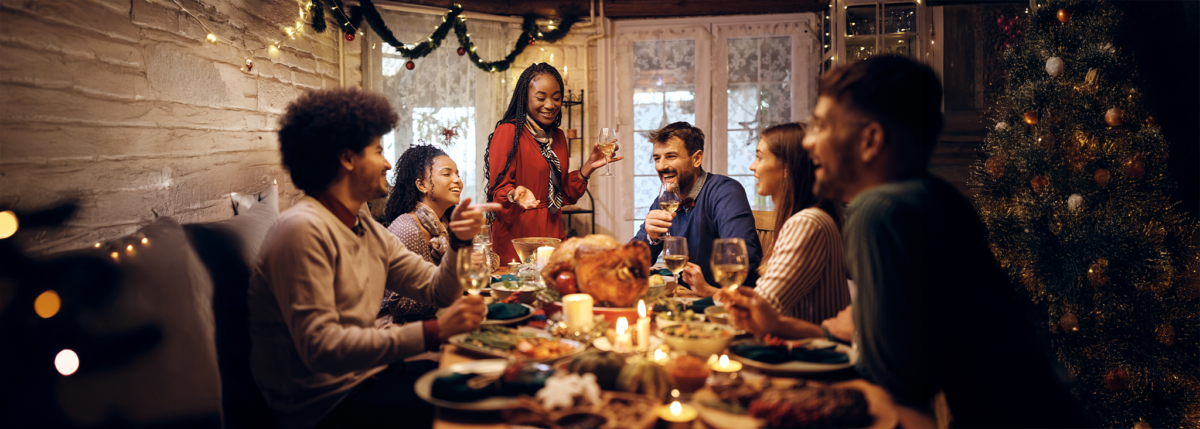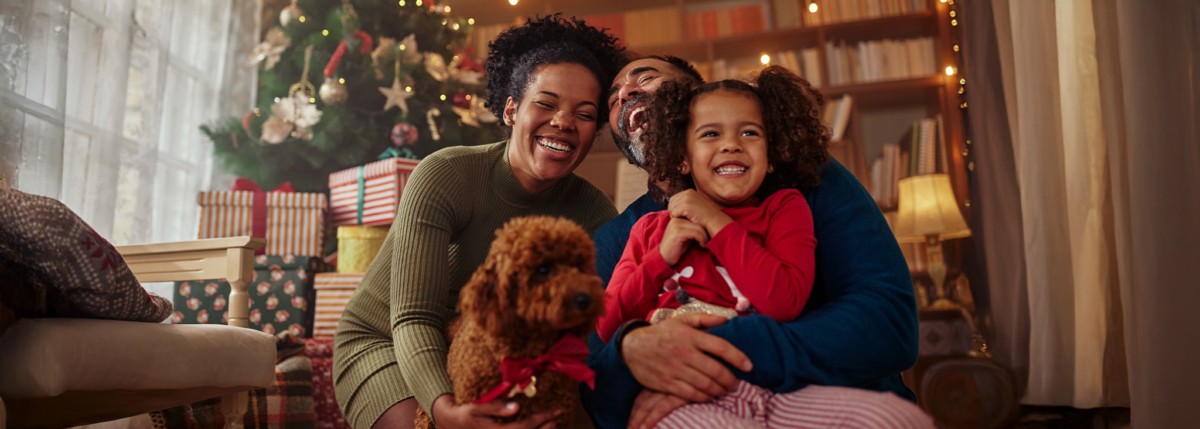Years I’ll Never Get Back: Body Dysmorphia, Type 1 Diabetes and Self-Love
Written by: Julia Flaherty
8 minute read
April 7, 2022
Editor’s note: This article does not substitute for medical advice from your healthcare team. This article is a personal account of disordered eating that should be valued as an opinion-style piece and not medical advice.
Sensitive Topic Warning: This article includes a personal account of disordered eating. Disordered eating is a serious condition with serious consequences. If you are struggling with any form of disordered eating, please reach out to your heatlhcare team or emergency services.
At 10-years-old, I lost a lot of weight. I was a child—my size shouldn’t have mattered, but my mom received compliments from friends and family members about my slender figure. They asked her what she was doing to help me lose weight.
I had just been diagnosed with type 1 diabetes.
At 15-years-old, I learned that I was valuable because my friends thought I was “skinny.” Yes, I was thin, but the assumptions that come with being thin—and the things people said to me—led to a very disordered relationship with food and my body.
Why do we assume skinny people don’t struggle with their self-image or need to manage how much food they eat? These assumptions wreaked havoc on my mental health for years.
“You’re skinny, so you can eat whatever you want.”
At 16-years-old, I cried through the wall of an Old Navy dressing room to my dad, because I had moved up from a size 0 to a size 2. My friends thought they were complimenting me by saying I was so lucky that I could “eat anything” because I was skinny. The truth was I couldn’t eat anything I wanted and maintain that size.
Still, I ate as much ice cream as I wanted. I went through puberty and gained the weight they said I wouldn’t.
I gained the most weight I ever had later that year. And along with it, I developed severe body dysmorphia. Body dysmorphia tends to be a catch-all term, but for me, it meant that I thought I was bigger than I was and that I wouldn’t be valuable or attractive if I kept gaining weight. I thought no one would want me if they didn’t think I was beautiful, which I associated with being thin.
At 17-years-old, I was a size 6. The compliments stopped. I was told by a friend I was “proportional.” I was proportional, and I was healthy. Still, I thought it was an insult. Coming from another teenager, the comment felt passive-aggressive. We were in high school, and now I know she was projecting her own insecurities onto me. She didn’t mean to hurt me.
I stopped taking my insulin completely for a week that year because I thought it would help me lose weight and “be attractive again.” It did not help me lose weight and was incredibly dangerous. This is not a method anyone should use to attempt to lose weight. I could’ve easily fallen into diabetic ketoacidosis (DKA) had I continued. I almost threw up and lost consciousness in the middle of a speech class because I was depriving myself of everything my body needed—insulin and food.
The other kids told me they thought it was a part of my speech when I stopped in the middle of it to announce I had to run to the bathroom. They didn’t know my body was shutting down. I was talented at keeping my diabetes to myself back then.
Should I only eat a handful of almonds?
I remember watching an episode of “Pretty Little Liars” where the characters Hanna and Mona only ate a small number of almonds per day to lose weight. I thought if I did that, I would be on the right path too. (I clearly wasn’t paying attention to later episodes and clung to the idea that I would be beautiful if I didn’t eat or weigh much.)
At 18-years-old, I changed my diet and started exercising more, still believing that my value was contingent upon my weight. I had just started college, barely an adult. The women in my dorm were equally obsessed with their body sizes and shapes.
At 20-years-old, I found the Tracy Anderson Method and began exercising obsessively, dropping down to a size 4. (I don’t blame Tracy—I overdid it because I thought I should.) I was working eight-hour shifts at a factory in the morning to save for school. Then I’d have three hours off before starting my six-hour night shift at a grocery store. Sometimes, I worked Saturdays at the factory, too.
I spent the majority of my three-hour break between jobs exercising intensely. (Both those jobs had me on my feet all day.) I thought I was doing something nice for myself.
By the weekends (when I finally had “downtime”), I was so exhausted that all I did was sleep and cry.
All I did was sleep and cry.
At 21-years-old, I moved to the east coast and started working full-time. My primary form of exercise quickly pivoted to walking around airports and tradeshows, and later, my walks to and from Port Authority to my then workplace.
The amount of time I had to exercise was lacking, so I paid closer attention to what I was eating.
Something needed to change
I knew I wasn’t happy for a long time but at 23 years old, I finally wanted to do something about it. While driving on the New Jersey turnpike, I remember having a moment thinking, “If only I loved myself the way I love my friends.” That recognition hit me hard. I finally decided I wanted to do something about everything contributing to my unhappiness. So, I returned to the Midwest to work on myself and be closer to my family.
It took many years of therapy and finding new self-love to know and believe that my value extends far beyond my looks or weight—that my value actually has little to do with either.
Today, I am the heaviest I’ve ever been. I sit between a size 8 or 10. 15-year-old Julia would cringe hearing this. 28-year-old Julia is sad that she would’ve. I wish I could hug my younger self. I wish I could tell her that her value isn’t her weight. I wish I could tell her that her health and happiness are not the same as the number on the scale and compliments from others.
I can’t tell her that.
But I can tell you, whoever you are, that you are far more valuable than what you weigh or look like. I’m sorry if someone has told you otherwise. I’m sorry if someone has fueled you into believing otherwise. I’m sorry if you became that person for yourself.
Forgive yourself. Forgive them for believing the same things you once did or do. We are all fed the same ideas about body image.
Rethinking self-love and value, finding a place to heal
It’s crazy how much pressure society puts on young women, especially, to maintain a certain image. Today, I don’t care about all that. Any weight I lose will be for my present and future happiness and health, not an ideology I’m trying to live up to. Our bodies need nutrients and love. Our bodies even need some actual body fat to function properly! Our bodies do so much for us.
We are allowed to eat. We are allowed to enjoy eating. We are allowed to say, “I love food.” Go ahead—say it! Enjoy feeling good about saying it.
We are capable of finding healthy relationships with food and exercise. Thinking about health and weight all day is not healthy. Obsessing over it can only lead to disordered eating.
Many women I’ve spoken with about this topic share similar experiences and stories. This touches the surface of the many hurtful things I’ve heard over the years from friends, family and culture. We’re taught to do this to each other.
We shouldn’t find common ground so easily in this experience of hating our bodies—we need to change the narrative. Progress is happening, but we have further to go.
Changing the conversation with myself and others
It isn’t easy to share this story, but it is freeing and gratifying to know I am not stuck in this mindset that I let linger far too long—that I am now the self I once needed.
I still have the occasional bad days where I have to fight the mean little voice inside my head who tells me I’m not enough, but I feel fortunate that at 28-years-old, my nurturing voice is much stronger and more confident. I don’t hear that mean little voice much at all anymore. (I gave her the official eviction notice in my mid-20s.)
I am in a good place, and I wish for everyone to get to a place of comfort, peace and ultimate self-love. It takes work and time.
Healing looks different for everyone.
Overcoming body dysmorphia and finding self-love
The words and images that I subscribe to and how I practice self-talk make a big difference in maintaining and practicing my new beliefs about my body and value. For me, talk therapy and surrounding myself with encouraging people helped change my mindset and recondition my thoughts. Simple things like following body-positive Instagram accounts also have a helpful impact.
You may find similar comfort in talk therapy or explore other avenues, like joining a support group, writing in a journal, developing techniques for stress management or reconnecting with friends and family.
There may also be other things going on that contribute to body dysmorphia and disordered eating that can be explored through talk therapy. Disordered eating and body dysmorphia are different for everyone and may require more serious medical intervention. Effective treatment and self-help routes vary.
I know how cruel the world can be about the female body. Please seek professional help if you need it. If you are going through body dysmorphia or disordered eating, you are not alone and you can overcome it. I hope by sharing my story, I am helping to create a safe and comfortable space for talking about disordered eating.
Words of affirmation
Regardless of whether you identify as a female, I want you to know, remember and believe that you are much more than a body. Everyone is—however you identify. Your health and happiness are not contingent upon the number you see on a scale. You have so much value. Self-love and healing are the most incredible work you can do for yourself.
I can tell you that in all of the pictures I look back on of myself from when I was 15 or 16 or 21, I never say, “I wish I were skinnier.” I always think, “I wish I would’ve loved her better.” From my personal experience, I can say that the sooner you love yourself fully, the happier and healthier you will be.
Practicing self-love and healing will let you thrive in all other areas of life and help you place value where it truly belongs, outside of ridiculous and toxic expectations about your body.
Resources for further support in recovery from an eating disorder as a person with type 1 diabetes:

Author
Julia Flaherty
Julia Flaherty is a published children’s book author, writer and editor, award-winning digital marketer, content creator and type 1 diabetes advocate. Find Julia’s first book, “Rosie Becomes a Warrior.” Julia finds therapy in building connections within the diabetes community. Being able to contribute to its progress brings her joy. She loves connecting with the diabetes communities, being creative and storytelling. You will find Julia hiking, traveling, working on her next book, or diving into a new art project in her free time. Connect with Julia on LinkedIn or Twitter.
Related Resources

The holiday season is filled with celebrations, family gatherings, and plenty of holiday foods. No...
Read more

Managing diabetes is a complex and often overwhelming journey—even nine years after my daughter's diagnosis....
Read more

The holiday season is all about celebration, family, and joy—with a little chaos sprinkled in...
Read more

